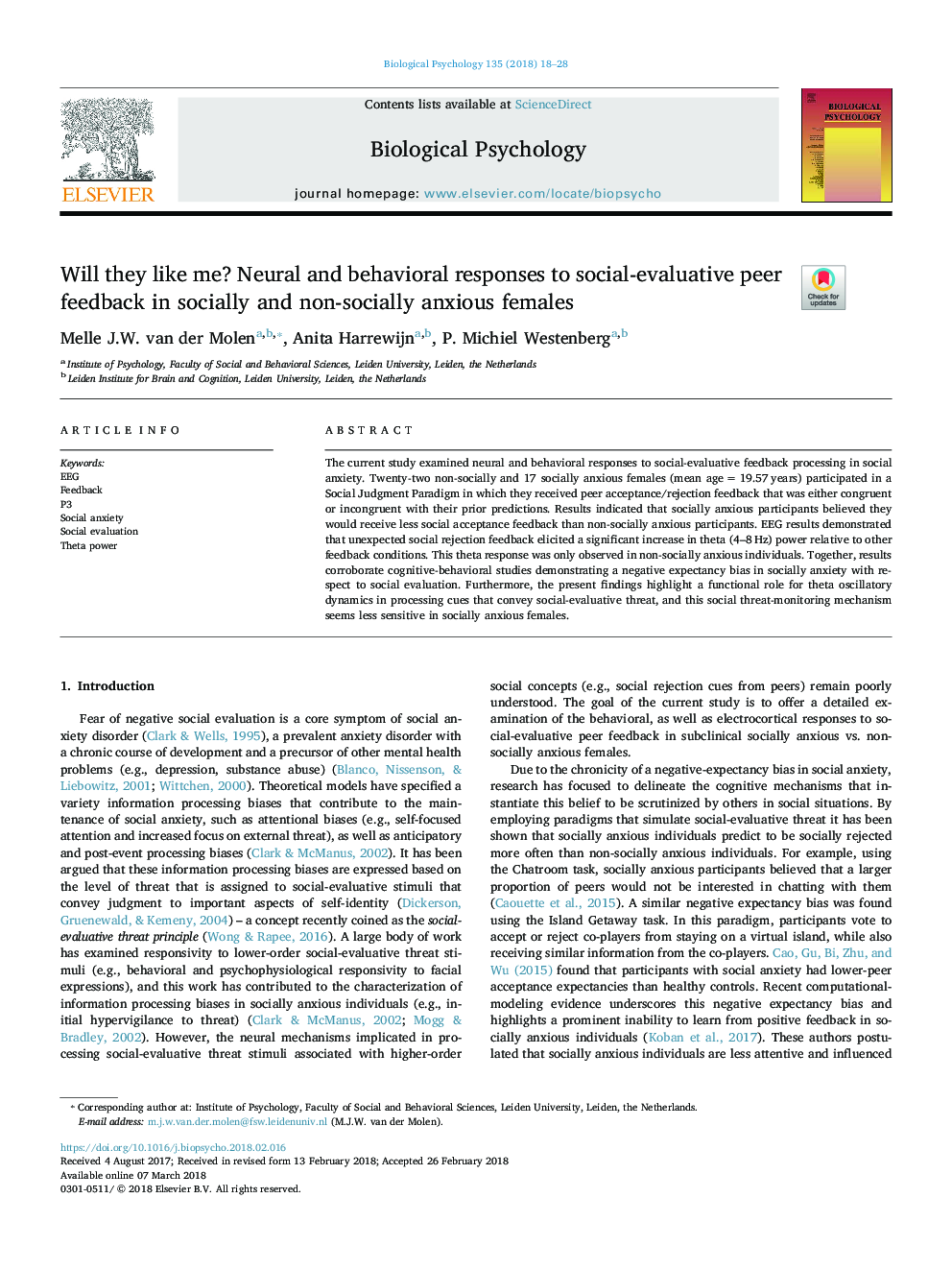| Article ID | Journal | Published Year | Pages | File Type |
|---|---|---|---|---|
| 7278114 | Biological Psychology | 2018 | 11 Pages |
Abstract
The current study examined neural and behavioral responses to social-evaluative feedback processing in social anxiety. Twenty-two non-socially and 17 socially anxious females (mean ageâ¯=â¯19.57â¯years) participated in a Social Judgment Paradigm in which they received peer acceptance/rejection feedback that was either congruent or incongruent with their prior predictions. Results indicated that socially anxious participants believed they would receive less social acceptance feedback than non-socially anxious participants. EEG results demonstrated that unexpected social rejection feedback elicited a significant increase in theta (4-8â¯Hz) power relative to other feedback conditions. This theta response was only observed in non-socially anxious individuals. Together, results corroborate cognitive-behavioral studies demonstrating a negative expectancy bias in socially anxiety with respect to social evaluation. Furthermore, the present findings highlight a functional role for theta oscillatory dynamics in processing cues that convey social-evaluative threat, and this social threat-monitoring mechanism seems less sensitive in socially anxious females.
Related Topics
Life Sciences
Neuroscience
Behavioral Neuroscience
Authors
Melle J.W. van der Molen, Anita Harrewijn, P. Michiel Westenberg,
